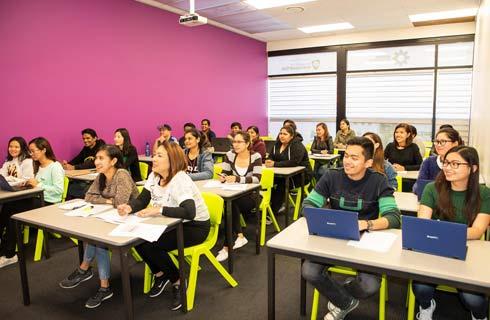国际学生入学条件
Basic requirements for admission as an international student to a bachelor's degree program include the following:
Completion of formal secondary education in a pre-university curriculum.
Completion must include the awarding of a diploma or the issuance of a leaving certificate or matriculation certificate generally recognized as the educational qualification necessary for admission to higher studies.
English language ability at a level sufficient to undertake a full course of study.
Scholastic Aptitude Test (SAT) or American College Testing (ACT) scores (if applicable).
International students are not required to provide an ACT or SAT score, but they may use the ACT or SAT to satisfy English language proficiency requirements.
Copy of Passport or National ID card. All international applicants and international students who are visa holders in the US must also provide a copy of their current visa or immigration status. All international applicants and international students who are visa holders in the US must provide a copy of their current visa or immigration status.
展开
IDP—雅思考试联合主办方

雅思考试总分
6.5
- 雅思总分:6.5
- 托福网考总分:80
- 托福笔试总分:160
- 其他语言考试:Pearson Test of English (PTE) Academic and PTE Academic Online- 53
CRICOS代码:
申请截止日期: 请与IDP联系 以获取详细信息。
课程简介
Manufacturing continues to remain one of the leading contributors to the national GDP, and the growth and innovation within nearly all sectors of manufacturing can be attributed to data driven solutions. Smart manufacturing uses data generation and evaluation at various scales to help make informed decisions from control of specific equipment to the operation of an entire factory. Smart or intelligent manufacturing technologies being applied to increase productivity, improve quality, and reduce costs include digital engineeringdesignmanufacturing, robotics and automation, real-time data analytics, lean and agile process management, six sigma statistical process control, and additive manufacturing. Smarter, automated and more flexible companies need academically qualified and skilled manufacturing engineers. Manufacturing continues to remain one of the leading contributors to the national GDP, and the growth and innovation within nearly all sectors of manufacturing can be attributed to data driven solutions. Smart manufacturing uses data generation and evaluation at various scales to help make informed decisions from control of specific equipment to the operation of an entire factory. Smart or intelligent manufacturing technologies being applied to increase productivity, improve quality, and reduce costs include digital engineeringdesignmanufacturing, robotics and automation, real-time data analytics, lean and agile process management, six sigma statistical process control, and additive manufacturing. Smarter, automated and more flexible companies need academically qualified and skilled manufacturing engineers.You’ll learn to identify and solve complex engineering problems by applying principles of engineering, science, and mathematics. You’ll then be prepared to create and apply new manufacturing technologies to increase productivity, improve quality, and reduce cost. Teamwork, leadership, and communication skills are also stressed in the program. Our graduates typically work as manufacturing engineers in such areas as quality control, tool design, production engineering, computer-aided design and computer-aided manufacturing (CADCAM), or plant facilities engineering. After gaining industrial experience, graduates might enter the field of technical management as a production engineer, quality control manager, manufacturing engineer, operations manager, plant manager, or project engineer.
展开







 预科
预科 奖学金
奖学金 实习机会
实习机会 在校学习
在校学习 跨境学习
跨境学习 校园授课-线上开始
校园授课-线上开始 在线/远程学习
在线/远程学习













 萨省理工学院
萨省理工学院

 尼亚加拉学院
尼亚加拉学院

 尼亚加拉学院
尼亚加拉学院

 凯布莱恩学院
凯布莱恩学院

 卡尔加里大学
卡尔加里大学

 卡尔加里大学
卡尔加里大学









